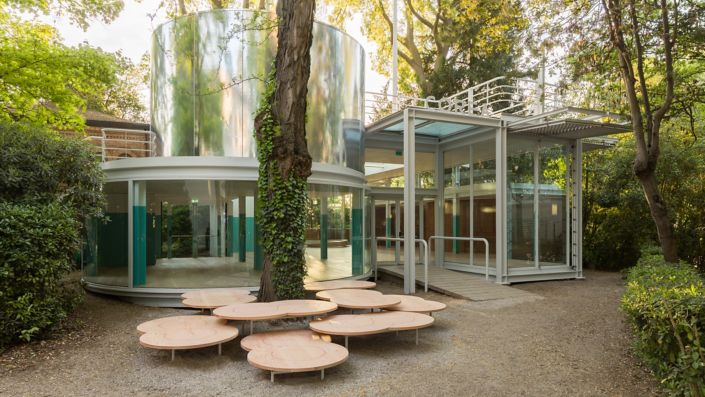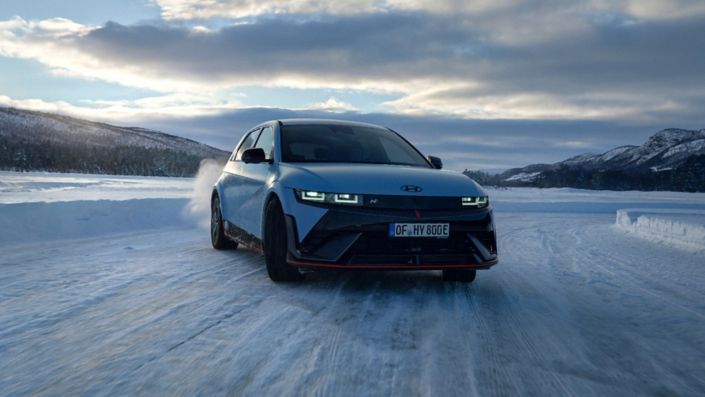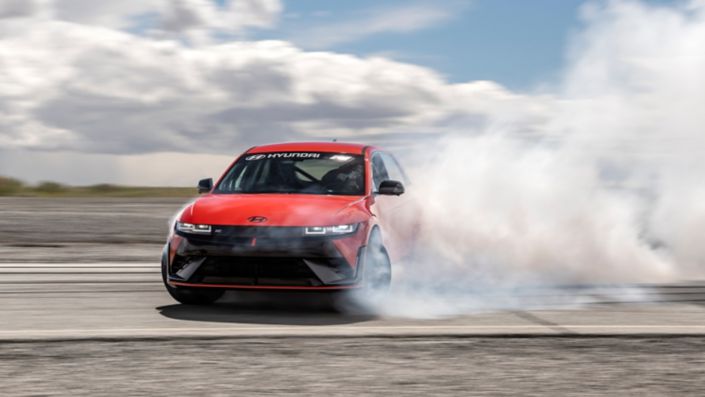What is Hyundai CRADLE?
- In 2017, Hyundai Motor Group established a Strategy & Technology Division to gain new momentum for future technological innovation.
- Hyundai CRADLE is Hyundai Motor Company’s corporate venturing and open innovation business focused on seed-to-growth investments in, amongst others:
- Artificial intelligence
- Robotics
- Mobility-as-a-service (MaaS)
- Smart energy solutions
- Smart cities (including mobility services and cyber security)
- The name stands for Center for Robotic-Augmented Design in Living Experiences. The name reflects Hyundai’s commitment to not just developing new mobility solutions, but to using new technologies to improve peoples’ quality of life. We are interested in working with pioneers of robotic technologies to create mobility solutions for not just the few but for all.
- This is in support of Hyundai’s strategy to develop advanced future automotive technologies.
- CRADLE is reinforcing external collaborations in order to speed up the development of cutting-edge technologies crucial to commercialising autonomous vehicles, which will provide customers freedom in both space and time.
- Hyundai CRADLE has hubs in five cities worldwide: Seoul, Silicon Valley, Tel Aviv, Berlin, and Beijing.
- After the launch of the Hyundai CRADLE headquarters in Seoul, the first CRADLE hub was launched in Silicon Valley in 2017. The Silicon Valley hub focuses on strategic venture capital, collaboration with startups and new concept development.
- The Tel Aviv hub launched in 2018. It focuses on corporate venture and open innovation in the fields of deep tech, artificial intelligence, robotics, smart energy, smart cities, mobility, and cybersecurity.
- The Berlin hub, launched in April 2019, focuses on “disruptive innovation” in Europe. CRADLE Berlin scouts out promising start-ups in the region with a strong focus on smart cities and mobility solutions.
The most recent CRADLE was launched just two months ago (September 2019) in Beijing. CRADLE Beijing focuses on open innovation activities and business opportunities with information and communication technology (ICT) companies with an emphasis on introducing new solutions to the Chinese local market.
Which companies does Hyundai CRADLE look to invest in, and why?
- Hyundai CRADLE targets startup companies that align with Hyundai’s long-term strategic directions and can help the company keep ahead in the automotive technology field.
- Hyundai CRADLE aims to invest in companies, regardless of size and scope, that have a sustainable competitive advantage in an attractive growing segment.
- Hyundai CRADLE has experience in co-investing with leading worldwide financial investors, as well as corporate investment programmes. Hyundai CRADLE is open to either leading or joining investment rounds.
- Hyundai CRADLE is a strategic investor, meaning it only invests in companies that have an internal BU strategic sponsor.
Hyundai CRADLE invests from the corporate balance sheet. Hyundai Motor Company does not have a dedicated fund allocated for venture investments.
Why did Hyundai choose Tel Aviv as a CRADLE Hub?
- Worldwide, Israel is the second market where HMC has a number one market share of the delivery of new vehicles.
- This creates a unique opportunity for Hyundai to leverage its brand and local size to innovate more in Israel and connect to the local ecosystem.
- More than 10,000 new start-ups were established in Israel in the past ten years, according to the IVC Research Center – a huge number for a country with only nine million inhabitants. The modern tech hub of Tel Aviv even has 19 startups per square kilometer, or one per 290 inhabitants.
- Israel made almost five billion venture capital loose in 2017. That is 30 times more per capita than in Europe and two-and-a-half times more than in the USA, according to the IVC Research Center.
- In relative terms, investments in research and development are world leaders.
Because of Israel’s geo-political situation and lack of oil resources, the country has made a strategic decision to be at the forefront of developing alternative fuel for vehicles. Israel’s greatest resource is human capital.
What projects is CRADLE Tel Aviv currently working on?
- Hyundai CRADLE Tel Aviv has a portfolio of Israeli startups from different mobility domains it has invested in. These fields include sensors to enable autonomous driving, cybersecurity, real-time trauma analysis in the case of car accidents, V2X, smart cities and connected cars.
- The startups in the CRADLE Tel Aviv portfolio to date include:
- MDgo – an in-car medical AI system that virtually reconstructs a car crash and predicts which injuries may have ensued to the vehicle passengers and what damage happened to the car
- Upstream – an automotive cybersecurity company developing technology to prevent cyberattacks on connected vehicles
- Autotalks – a V2X chipset market pioneer and leader that connects vehicles to other vehicles and road infrastructure which helps to reduce collisions on roadways and enable new mobility services
- Allegro.ai – a deep learning computer vision platform that provides a complete product lifestyle management solution for AI development and production
- Audioburst – an AI company developing a personalised, on-demand, AI-based voice audio search platform for in-vehicle infotainment
- D-ID – An AI solution that enhances privacy by protecting identities from automated facial recognition protects identities from face recognition
- H2Pro – an energy solutions provider developing a more efficient and cost-effective way to produce hydrogen fuel from water via electrolysis
- OPSYS Tech Ltd – a fast growing private company providing solutions for a wide range of applications utilising fibre optics technologies including solid state LiDAR for the automotive industry
- Percepto – a leading provider of autonomous on-site multi-mission drone systems for enterprises based on novel computer vision algorithms
Why did Hyundai choose Berlin as the location of its European hub?
- With a new company founded every 20 minutes, Berlin is the startup capital of Germany. It had 1,933 startups in 2019, according to the Deutscher Startup Monitor.
- Berlin’s international reputation for digital innovation creates an exciting ecosystem for innovation. The low cost of living, unique culture and big-city buzz it a magnet for international talent, and a surplus of young, qualified workers make it the perfect place for new businesses to expand quickly.
- An excellent infrastructure of co-working spaces have sprung up around the Berlin startup scene, creating not just a space to work but a place to network, exchange ideas, and get inspired. This has fostered a community of founders and investors, often working together under one roof.
CRADLE Berlin will identify startups, universities and strategic partners that focus, amongst others, on ‘Disruptive Innovation’ being developed in the European region. The Berlin hub will particularly focus on startups delivering promising innovations in the areas of mobility services, smart cities and eco-friendly technologies.
What are some of the projects CRADLE Berlin is working on?
- CRADLE Berlin has partnered with several European ventures, accelerators and innovation platforms, including:
- Startup Autobahn, an innovation platform focused on the future of mobility
- The Intelligent Mobility Accelerator, a UK-based accelerator which focuses on disruptive startups with high growth potential
Earlybird, a Berlin-based venture capital investor focused on European technology innovators











